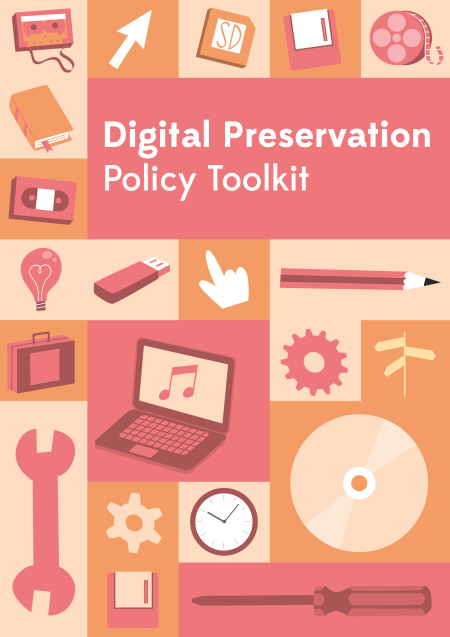 The Digital Preservation Coalition (DPC) has released a new version of the Digital Preservation Policy Toolkit to coincide with its Relaunch Roadshow in Australasia.
The Digital Preservation Coalition (DPC) has released a new version of the Digital Preservation Policy Toolkit to coincide with its Relaunch Roadshow in Australasia.
Now freely available for anyone within the digital preservation community to use and designed for organizations of any type, the Digital Preservation Policy Toolkit guides users from initial research and preparation phases, through to drafting a policy, gathering feedback and communicating the finished policy.
Helen Dafter, DPC Member and Archivist at the Postal Museum in the UK said: “The DPC Policy Toolkit was really useful to get past the blank page stage of attempting to write a policy and not quite knowing where to start. It provided a useful prompt for the areas I might want to include and encouraged me to reflect on the purpose of the policy, and how it aligned with both our wider policy framework and our actual practices.”
Originally developed in 2020 out of a three-day Book Sprint with the University of Bristol and other DPC Members, Version 2 of the Digital Preservation Policy Toolkit includes a step-by-step guide to developing a policy, a template including multiple example policies and a list of helpful resources. The template section has been revised to incorporate new and updated examples and now also includes a section which addresses environmental sustainability. Another new section of the toolkit focuses on the important topic of policy review and links to case studies from members.
This Toolkit builds on the work of numerous members of the digital preservation community and brings together many good examples of digital preservation policy. The DPC thanks all of those who make their preservation policies publicly available, enabling the community to learn by seeing how others have tackled this challenge.
The DPC is an international charitable foundation which supports digital preservation, and maintaining resources like the Digital Preservation Policy Toolkit is just one of the ways it helps the digital preservation community around the world to deliver resilient long-term access to digital content and services. The Coalition also supports its members through community engagement, targeted advocacy work, training and workforce development, capacity building, good practice and standards, and through good management and governance. Its vision is a secure digital legacy.









































































































































